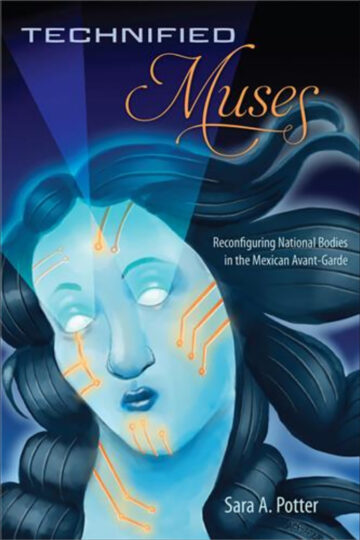Sara Potter, PhD ’13, uses the idea of the muse from Greek mythology and the cyborg from posthuman theory to consider the portrayal of female characters and their bodies in Mexican art and literature from the 1920s to the present. Examining genres including science fiction, cyberpunk, and popular fiction, Potter finds that “technified muse” figures often appear in these texts at moments of violence and sociopolitical transformation.
Potter begins by looking at two avant-garde movements that emerged in the aftermath of the Mexican Revolution: the Estridentistas and the Contemporáneos. Moving to the “Mexican Miracle,” a midcentury period of economic prosperity, she considers the work of surrealists Leonora Carrington and Remedios Varo within their cultural and political climates. She then addresses the aftermath of the 1968 student massacre in Tlatelolco as explored in Fernando del Paso’s Palinuro de México and Juan García Ponce’s Crónica de la intervención. Finally, Potter engages with the era that began with the 1994 North American Free Trade Agreement and Zapatista rebellion, drawing from Bernardo Fernández’s Gel azul, Guadalupe Nettel’s El huésped, and Karen Chacek’s La caída de los pájaros.
Technified Muses shows that during these key periods, writers created muse-like characters that interact with the technological discourses of their times. These figures reflect the increasing emphasis on science and progress throughout the 20th century, embodying the modernization of Mexico while offering parallel narratives that challenge official portrayals of the nation’s history.
About the author
Potter earned her doctorate in contemporary Latin American literature at WashU in 2013, and she is now an associate professor of Spanish at the University of Texas at El Paso. Publication of this work was made possible by a Sustaining the Humanities through the American Rescue Plan grant from the National Endowment for the Humanities.
